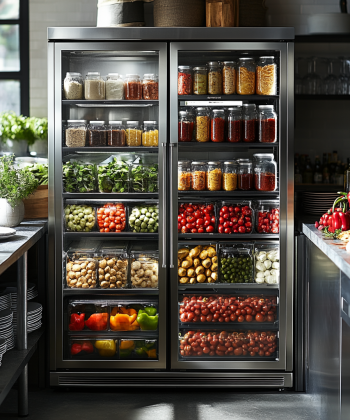
Cooking oil is a crucial resource in commercial kitchens, but improper management can lead to unnecessary expenses, poor food quality, and environmental damage.
Thankfully, many food businesses are beginning to implement strategic oil recycling and reuse systems to enhance operational efficiency while maintaining food consistency and safety. One good example is using fry-oil management systems like FryLow.
The long-term benefits of using FryLow and similar systems extend beyond cost savings. They also contribute to sustainability by improving oil efficiency and reducing waste.
Continue reading to discover how commercial kitchens can maximize oil usage, minimize waste, and ensure compliance with industry best practices.
Understanding Oil Recycling and Reuse
Commercial kitchens, particularly those specializing in fried foods, use significant amounts of cooking oil. Disposing of used oil can become a logistical and environmental challenge without a proper system in place.
When done correctly, recycling and reusing oil can lower costs and reduce a food establishment’s overall carbon footprint.
Oil recycling involves filtering and purifying used oil so it can be used multiple times before disposal. It helps save fry oil by extending its life and maintaining the quality of fried foods.
Effectively reusing oil requires monitoring its condition, using filtration systems, and ensuring it remains free of contaminants that could affect taste or safety.
Best Practices for Oil Recycling in Commercial Kitchens
A structured approach to oil management ensures high food quality while reducing waste and expenses. Understanding the best methods for recycling and reusing oil can help kitchen staff optimize performance and sustainability.
1. Monitoring Oil Quality
Consistent monitoring is key to successful oil reuse. Oil degrades over time due to exposure to heat, food particles, and oxygen.
Regularly testing oil for color, viscosity, and smell helps determine when it needs to be filtered or replaced. Many kitchens use test strips or digital meters to measure oil quality, ensuring it remains within optimal frying conditions.
2. Using Effective Filtration Systems
Filtration is critical to extending the life of cooking oil. Commercial-grade filtration systems remove food particles, carbon deposits, and other impurities that can accelerate oil degradation.
Many modern fryers come with built-in filtration units, while standalone filter machines can be used for additional purification. Filtering oil at least once per shift significantly prolongs its usability and enhances food consistency.
3. Ensuring Proper Storage and Handling
Recycled oil should be stored correctly to maintain its integrity. Dedicated, food-grade storage containers prevent contamination and keep oil fresh for reuse. Keeping storage areas cool, dark, and sealed reduces exposure to air and light, which can cause oxidation and spoilage.
Additionally, staff should be trained on proper handling procedures, such as avoiding introducing water or excess food debris into the oil, which can lead to dangerous splattering and deterioration.
Environmental and Economic Benefits of Oil Recycling
More than ensuring efficiency, recycling and reusing oil is a responsible practice that benefits both the business and the environment. Proper oil management reduces overall consumption, leading to lower purchasing costs. It also minimizes waste disposal fees and ensures compliance with environmental regulations.
From a sustainability perspective, responsible oil disposal prevents clogs in sewage systems and reduces pollution. Many commercial kitchens partner with biodiesel manufacturers, which convert used cooking oil into renewable fuel. This supports the green economy and provides an additional revenue stream for restaurants that sell their used oil.
Ensuring Compliance with Industry Standards
Restaurants must follow strict guidelines for oil disposal and recycling. Local health and environmental agencies regulate oil waste management, and non-compliance can result in hefty fines. Keeping detailed records of oil usage, filtration schedules, and disposal methods helps ensure that kitchens comply with industry standards.
Additionally, partnering with certified oil recycling services guarantees proper disposal and maximizes sustainability efforts. These services handle oil collection and transportation, converting waste into valuable byproducts such as biofuels and animal feed.
Conclusion
Effective oil recycling and reuse in commercial kitchens lead to cost savings, improved food quality, and environmental benefits. Implementing consistent monitoring, filtration, and proper storage allows restaurants to optimize their oil usage while maintaining compliance with industry regulations.
Sustainable oil management is essential for any kitchen aiming for efficiency and long-term success.

